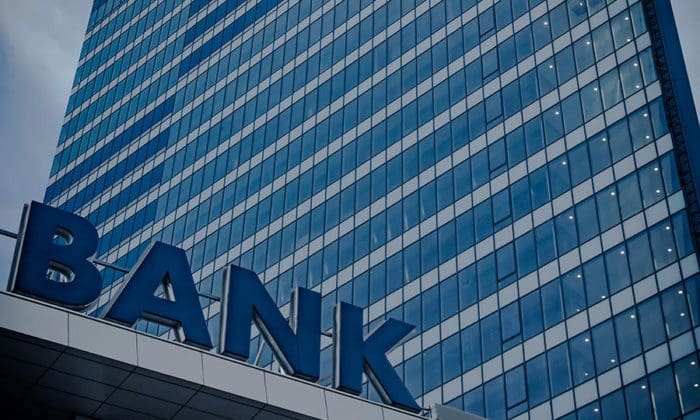Like so many others, I have continued to be fascinated by the blowup at Archegos, the Hwang family office. Banks have experienced billions of dollars in losses as a result of this debacle. While the losses never rose to the level of systemic risk – hence the broader markets’ willingness to take the events largely in stride – there is nothing to suggest that it couldn’t have metastasized into something larger. Regulators need to ensure that a single customer’s leveraged exposures can never cause a result like the one we saw over the past days.
Yesterday, I asserted that Mr. Hwang (whom I’ve never met) appeared to have a certain swagger, an “arch ego” if it were, that enabled him to rise phoenix-like from a guilty plea for wire fraud in 2012. Even more amazing to me, it appears that the recent blow-up hasn’t shaken the confidence that Mr. Hwang’s former mentor, Tiger Management founder Julian Robertson, still retains in his protégé’s prowess. There were clearly loopholes that a charismatic, aggressive investor could exploit, and only a regulatory regime can close, or at least shrink them.
As I related earlier this week, it was impossible to know who was behind the huge block trades in affected stocks that were hitting the market last Friday. We could figure out which brokers were doing the trades, but the only holders with positions large enough to execute the trades were the brokers executing them. Since it was highly unlikely that the banks were willing to speculate so heavily in their own account, the speculation was that the shares were owned in “street name”, meaning that the institutional ownership was somehow the broker rather than the fund itself. We only learned later that the banks were indeed the owners, holding them as collateral for equity swaps and other private contracts done on behalf of clients. Or should I say client, singular, since the bulk appeared to be held on behalf of Archegos?
Street name ownership is a very normal situation for average investors and worrisome in and of itself. I would guess that the bulk of this article’s readership owns shares in street name. Margin accounts typically work this way, where the broker owns the shares in its name as collateral for any margin lending that the customer might engage in. This is standard practice, even if the customer isn’t utilizing margin lending. It’s a generally innocuous and well-regulated practice.
The problem arises when the use of street name obfuscates holdings that might be subject to reporting requirements. In general, anyone who manages over $100 million in assets is required to disclose their holdings on a quarterly basis to the Securities and Exchange Commission (SEC) using form 13F. While I am not expert enough on disclosure rules to be perfectly certain that a family office is subject to this type of disclosure, a fund with as much under management as the $5-$10 billion Archegos would certainly be required to file a 13F.
As with any complex question, there are multiple permutations:
- Was Archegos using swaps and the like to skirt disclosure requirements?
- How would one disclose the holdings? Would it be based upon the face amount of the swap involved, the collateral held by the broker, or on the total economic value that the swap could create?
- Is it possible to skirt the type of supplemental disclosure required when a single entity acquires more than a 5% interest in a company’s shares? If the shares are collateralizing a single owner with a reportable beneficial interest but held by numerous banking entities, is that a violation at least of the spirit of the rule? And what if the contracts offer even greater ownership in practice than the collateral might imply?
- How much can and should each bank know what the other is doing? A private contract between a bank and its customer is indeed private. But what happens if a series of contracts with similar economic risks and rewards are extended unknowingly by a series of banks to the same customer? At that point the risks are magnified. Would disclosure reduce that risk?
The recent GameStop saga was heavily publicized and received Congressional scrutiny. I doubt that the Archegos saga will receive the same sort of public hand-wringing. It is arcane and was not triggered by the individual investors who are Congress’ constituents. Any inquiry and regulation would likely be handled mostly behind closed doors. I can also see how the SEC, Federal Reserve and Comptroller of the Currency could have an interest in this matter, since the collateralized lending could have had ramifications for bank safety as well as market integrity. This will continue to be an interesting market wrinkle, even as the market’s attention inevitably moves elsewhere.
Disclosure: Interactive Brokers
The analysis in this material is provided for information only and is not and should not be construed as an offer to sell or the solicitation of an offer to buy any security. To the extent that this material discusses general market activity, industry or sector trends or other broad-based economic or political conditions, it should not be construed as research or investment advice. To the extent that it includes references to specific securities, commodities, currencies, or other instruments, those references do not constitute a recommendation by IBKR to buy, sell or hold such investments. This material does not and is not intended to take into account the particular financial conditions, investment objectives or requirements of individual customers. Before acting on this material, you should consider whether it is suitable for your particular circumstances and, as necessary, seek professional advice.
The views and opinions expressed herein are those of the author and do not necessarily reflect the views of Interactive Brokers, its affiliates, or its employees.
Disclosure: Margin Trading
Trading on margin is only for experienced investors with high risk tolerance. You may lose more than your initial investment. For additional information regarding margin loan rates, see ibkr.com/interest




















Join The Conversation
For specific platform feedback and suggestions, please submit it directly to our team using these instructions.
If you have an account-specific question or concern, please reach out to Client Services.
We encourage you to look through our FAQs before posting. Your question may already be covered!